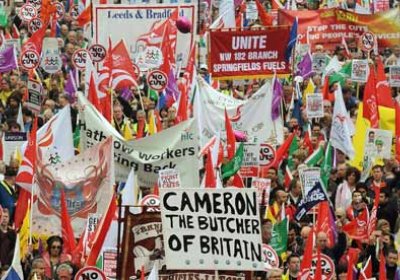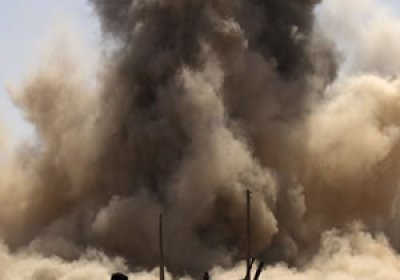The largest anti-nuclear protests in German history were held on March 26. About 250,000 people marched in Germany’s four largest cities.
Under the slogan “Fukushima Warns: Pull the Plug on all Nuclear Power Plants”, more than 120,000 took to the streets of Berlin, 50,000 in Hamburg, 40,000 in Koeln and upward of 40,000 marched in Muenchen.
In state elections held the next day, the German Greens won a historic victory in Baden-Wuerttemberg. They will form Germany’s first-ever Green-led government.
They also tripled their vote in elections in Rheinland-Pfalz.
875
The Australian Nursing Federation (ANF) issued a statement on March 29 calling for the immediate release of five West Papuan nurses who have been arrested and jailed by the Indonesian government for taking part in industrial action.
Eight nurses and midwives were detained on March 20 by the criminal investigation unit of the Papuan police in Jayapura, ANF acting federal secretary Yvonne Chaperon said. Five remain in jail.
About 500,000 people marched in London on March 26 against the British government’s program of huge spending cuts. Called by the Trade Union Congress (TUC), the march drew people from every part of Britain — a splendid cross section of the country with numbers dominated by the working class.
Hundreds of thousands of protesters rallied across Yemen on April 1 in the largest mobilisation so far calling for the removal of President Ali Abdulla Saleh, Associated Press said that day.
Protests took place in at least 14 provinces.
Saleh’s unwillingness to stand down has claimed m ore lives. Protesters have blamed Saleh for an explosion in an ammunition factory that killed about 150 people on March 28.
Protesters said Saleh’s government allowed the factory to be overrun by supposed al-Qaeda members who left the factory open for looters, Voanews.com said on March 30.
At the Bali Process summit held on March 30, immigration minister Chris Bowen and foreign affairs minister Kevin Rudd signed a “regional framework to prevent people smuggling” with 41 nations.
But they failed to bully East Timor into agreeing to an Australian detention centre on its soil.
Rudd said the agreement — ultimately intended to stop asylum seekers reaching Australia — “represents a significant win” for Australia. Bowen said it “lays a framework for further bilateral discussions” with East Timor.
Rob Stary, an Australian lawyer representing WikiLeaks editor-in-chief Julian Assange, spoke to the WikiLeaks Australian Citizens Alliance on February 4. In the interview below, Stary discusses the persecution of WikiLeaks and the failure of the Australian government to uphold Assange’s rights.
Writing in the aftermath of the several high profile WikiLeaks publications including the Collateral Murder video and the Afghanistan and Iraq War Logs, News Corporation journalist Brad Norington set out on a crusade against online media, and more specifically, against WikiLeaks and its founder Julian Assange.
See the activist calendar for details of screenings in your city.
John Pilger’s latest film, The War You Don’t See, looks at the power wielded by journalists reporting conflict. It examines the responsibility of the media in justifying and supporting the wars our governments wage.
Pilger asks: “What is the role of the media in rapacious wars like Iraq and Afghanistan and how are the crimes of war reported and justified?
“Those whose job it is to keep the record straight ought to be the voice of people, not power.”
Economists warned on March 31 that the British government’s public-sector cuts will leave a shortfall of more than half a million jobs.
The New Economics Foundation (NEF) also warned that nowhere in the budget or “plan for growth“ was there “any evidence that the business tax cuts, regulatory tweaks and relatively minor changes to public-sector investment that are promised will deliver major economic transformation”.
Trade Union Congress general secretary Brendan Barber said the findings showed that “in recent years, the market has become the master, not the servant, of society”.
The hypocrisy, double standards and selectivity displayed in the Western military action in Libya defy enumeration.
In Yemen and Bahrain, Western-backed regimes are violently repressing the democracy movement the West claims to back in Libya.
In Iraq, a US-sponsored regime protected by 47,000 US troops is trying to do the same —shooting demonstrators, detaining thousands and subjecting many to torture.
Modern ALP is a joke
I’m writing to comment on the interview with Andrew Ferguson in GLW #872. Was this a joke or fair dinkum?
Ferguson (and the dynasty he comes from) seems to me to represent everything that is wrong with the ALP.
Another union boss who never worked in the industry in which he was supposed to represent construction workers (three weeks or something as a stonemasons’ labourer ain’t what I call experience in everyday battling to survive).
Leonard Weinglass, a leading left-wing lawyer in the United States with an international perspective, died in the early evening on March 23, 2011.
Len, who died on his 78th birthday, fell ill in late January while in Cuba. In the first days of February, exploratory surgery at Montefiore Hospital discovered that he had inoperable cancer of the pancreas.
Lenny, a 1958 graduate of Yale Law School, became active in the US left lawyers’ organisation, the National Lawyers Guild, in the course of the civil rights movements of the 1960s.
- Previous page
- Page 3
- Next page









